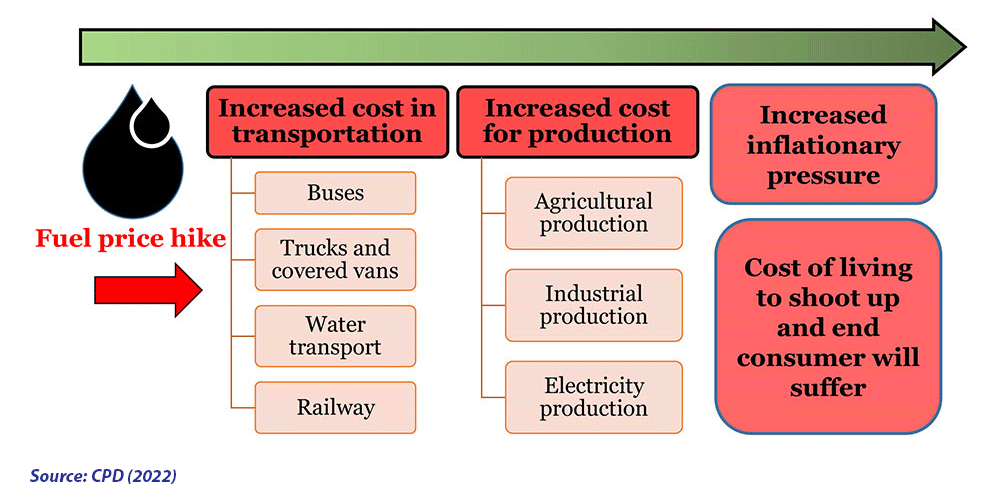Dax Volatility: Understanding The Influence Of German Politics And Economic Data

Table of Contents
The DAX (Deutscher Aktienindex) is a blue-chip stock market index comprising the 40 largest German companies listed on the Frankfurt Stock Exchange. Its performance is a crucial indicator of the health of the German economy and plays a significant role in the European and global financial markets. Understanding DAX volatility is crucial for anyone invested in or impacted by the German economy.
The Impact of German Politics on DAX Volatility
Political stability and policy decisions significantly influence investor sentiment and, consequently, DAX volatility. Uncertainty surrounding government actions can lead to market fluctuations, impacting the overall performance of the index.
Government Policies and Regulations
Fiscal policy, tax reforms, and regulatory changes directly affect business operations and investor confidence. These policies create uncertainty, influencing the DAX's performance.
- Minimum Wage Laws: Increases in minimum wage can impact labor costs and corporate profitability, potentially leading to DAX price fluctuations.
- Environmental Regulations: Stringent environmental regulations, while beneficial for sustainability, can impose additional costs on businesses, affecting their stock prices and DAX volatility.
- Corporate Tax Rate Changes: Alterations in corporate tax rates can impact corporate profits and investor sentiment, influencing DAX movements. A reduction may boost investor confidence, while an increase could trigger negative reactions.
These policy shifts introduce political risk and contribute to DAX volatility. Effective communication and transparency from the government can help mitigate this uncertainty, promoting stability. Investors need to closely monitor these changes and their potential impact on their portfolios. Understanding the nuances of political uncertainty and regulatory risk is crucial for navigating the complexities of the German market.
Geopolitical Factors and International Relations
Germany's prominent role in the European Union and its global relationships significantly impact the DAX. International events and tensions directly influence investor confidence.
- EU Policy: Changes in EU regulations or political instability within the Union can trigger uncertainty, affecting the DAX.
- International Trade Disputes: Trade wars or sanctions involving Germany can significantly impact exports and economic growth, creating DAX volatility. The US-China trade war, for instance, had a noticeable ripple effect across global markets, including the DAX.
- Brexit: The UK's departure from the EU introduced significant uncertainty into European markets, affecting the DAX due to Germany's close trade ties with the UK.
Geopolitical risk is a constant factor influencing DAX market sentiment. Investors must carefully consider the international landscape when assessing DAX investment opportunities. Understanding how Germany's role in international relations affects investor confidence is vital for managing DAX volatility effectively.
The Role of Economic Data in DAX Volatility
Economic indicators provide valuable insights into the health of the German economy and significantly influence DAX volatility. Strong economic data usually supports the DAX, while weak data can trigger market downturns.
Key Economic Indicators
Macroeconomic indicators play a crucial role in determining DAX volatility.
- GDP Growth: Strong GDP growth indicates a healthy economy, generally boosting investor confidence and DAX performance. Conversely, slowing GDP growth can trigger concerns and market corrections.
- Inflation Rate: High inflation erodes purchasing power and can lead to interest rate hikes by the European Central Bank (ECB), impacting DAX performance. Low and stable inflation is generally positive for the DAX.
- Unemployment Figures: Low unemployment rates usually reflect a robust economy and positive investor sentiment, supporting the DAX. High unemployment, however, signifies economic weakness and can negatively impact the DAX.
- Consumer Confidence: High consumer confidence suggests strong spending and economic growth, usually leading to a positive DAX market reaction.
These economic indicators are essential tools for understanding and predicting DAX market reactions. Investors need to monitor these indicators closely to make informed decisions. The economic health of Germany directly reflects in the performance of its flagship index, making data analysis essential for navigating DAX volatility.
Central Bank Policies (ECB)
The European Central Bank's (ECB) monetary policies significantly influence the DAX. Interest rate changes and quantitative easing programs affect borrowing costs and investor behavior.
- Interest Rate Changes: Interest rate hikes increase borrowing costs for businesses and may dampen economic activity, potentially impacting the DAX negatively. Conversely, interest rate cuts can stimulate economic growth and boost the DAX.
- Quantitative Easing (QE): QE programs, where the ECB injects liquidity into the market, can increase money supply and stimulate economic growth, which generally has a positive effect on the DAX. However, the long-term effects of QE can be complex and require careful consideration.
Understanding the ECB's monetary policy is crucial for navigating DAX volatility. Investors should closely follow ECB announcements and their likely impact on the DAX. The ECB's impact on DAX is a significant factor to incorporate into any investment strategy involving the German market.
Conclusion: Understanding and Managing DAX Volatility
The DAX's volatility is significantly influenced by both German politics and key economic data. Government policies, geopolitical events, economic indicators, and ECB actions all play crucial roles in shaping investor sentiment and market movements. Understanding these factors is paramount for investors and businesses operating in the German market.
To manage DAX volatility effectively, stay informed on key political and economic developments. Monitor economic indicators like GDP growth, inflation, and unemployment, as well as political developments and ECB policy decisions. By carefully analyzing these factors, investors can make more informed decisions and better navigate the challenges and opportunities presented by DAX volatility. For further research and real-time data, refer to resources like the Deutsche Börse website and reputable financial news outlets. Successfully predicting DAX movements and developing effective DAX investment strategies relies on understanding these critical influences.

Featured Posts
-
 Pegula Triumphs Epic Comeback Against Collins In Charleston
Apr 27, 2025
Pegula Triumphs Epic Comeback Against Collins In Charleston
Apr 27, 2025 -
 Artikel 40 Absatz 1 Wp Hg Pne Ag Veroeffentlicht Eqs Pvr Meldung
Apr 27, 2025
Artikel 40 Absatz 1 Wp Hg Pne Ag Veroeffentlicht Eqs Pvr Meldung
Apr 27, 2025 -
 Teslas Canadian Price Hike Impact On Consumers And Inventory
Apr 27, 2025
Teslas Canadian Price Hike Impact On Consumers And Inventory
Apr 27, 2025 -
 Motherhood Milestone Belinda Bencics Return To Wta Victory
Apr 27, 2025
Motherhood Milestone Belinda Bencics Return To Wta Victory
Apr 27, 2025 -
 People Betting On La Wildfires A Disturbing Trend
Apr 27, 2025
People Betting On La Wildfires A Disturbing Trend
Apr 27, 2025
